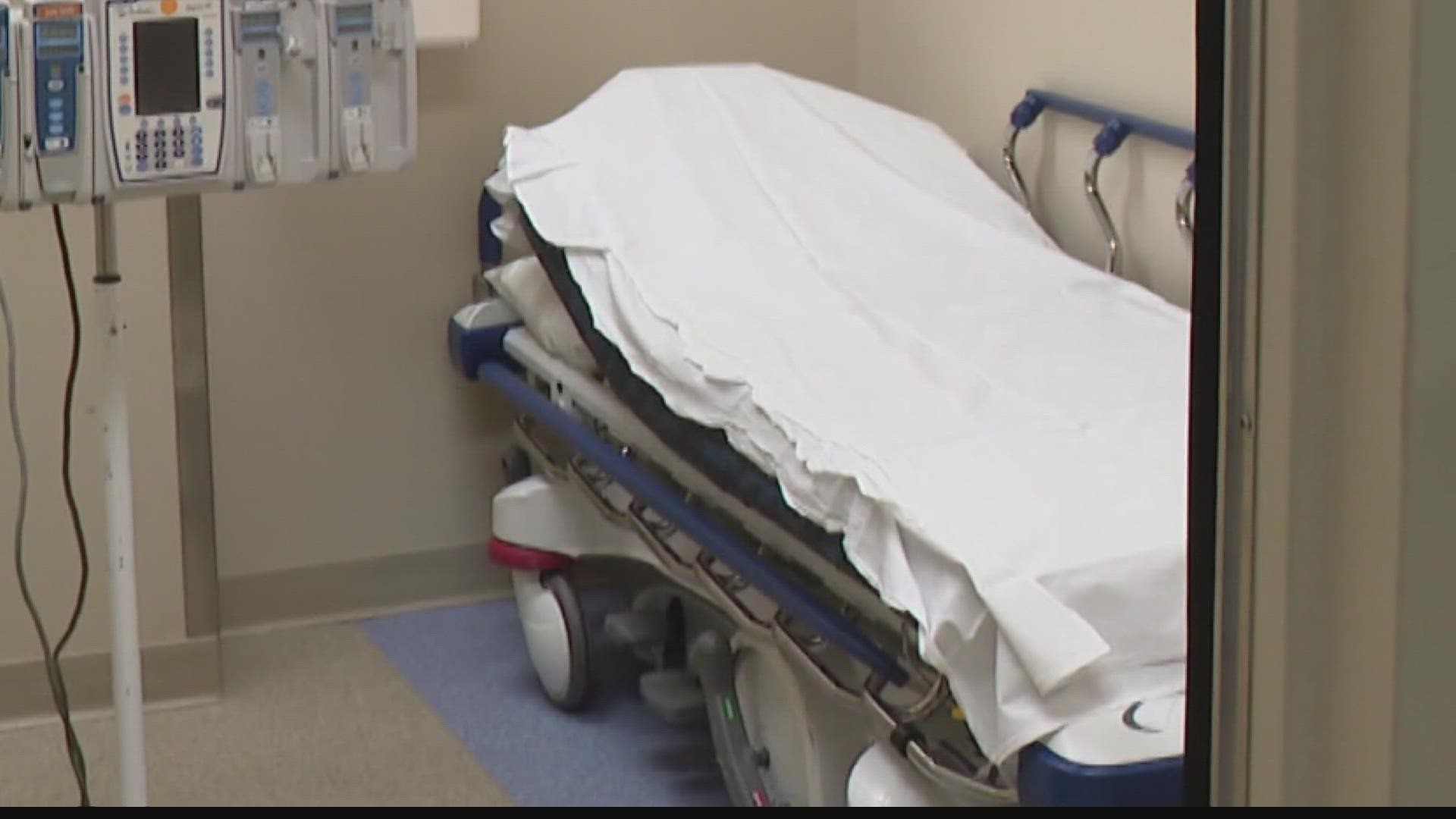INDIANAPOLIS — Late Tuesday afternoon, Indiana hospitals reported they are treating a record number of patients who have COVID.
That's the backdrop for a series of Twitter posts from a resident chaplain at IU Health.
This past weekend, Rabbi Mike Harvey wrote about what doctors, nurses, patients and their families are facing in the ICU, including what it's like to pray with people dying from COVID-19.
His posts have since been shared thousands of times and are getting national attention.
"COVID is a cruel disease and it's taken over our ICU," Harvey wrote. "So what is it like walking down the halls of the pods of the ICU? It's cold, it's dark and it's quiet. Because these folks are all intubated, hooked up to massive amounts of equipment, machines breathing for them and feeding them through tubes."
The thread of 20 tweets went viral over the weekend, sharing the grim reality of the COVID crisis inside Indiana hospitals.
Harvey's perspective is unique. He's been a resident chaplain with IU Health, working in COVID units, since August. The surge right now, he said, has left staff fighting a "losing battle" in the ICU.
"One of the things I wanted to paint a picture of was the view of that unit that people often aren't able to see," he explained.
Rabbi Mike said he witnesses fear from families and stress from overwhelmed staff who try so hard to save lives, yet watch people die daily.
"It affects us emotionally. It affects us mentally. It affects us physically. People are run down. They're getting sick," he said. "That in itself would be hard, but the fact that a few hours later, that room empties and is replaced with someone else. We don't have a lot of time to process and mourn."
In those rooms, Harvey bridges science and faith. Offering loved ones and colleagues spiritual comfort and prayer and a place to vent or cry is his honor, he said.
But those vulnerable moments also aren't easy, especially with so many unvaccinated patients who didn't think COVID was real.
"They tell us to pray. Can you imagine. Sitting in my PPE gear, my N-95 pinching my face, my face shield fogging up, my gloves tight on my hands and the unvaccinated wife who made her husband refuse vaccination, asks me to pray for him as he lays dying," Rabbi Mike wrote on Twitter.
"We have to provide care to people who are feeling guilt or shame or frustration with their own family members or their stubbornness," he said. "Then there are the immunocompromised. They did everything they were supposed to do and yet they still end up here in the woods, in trouble. Those moments are difficult when we feel helpless, when we feel perhaps there were other things a patient could have done or there was nothing a patient could have done. Both of those are really hard to process."
Yet Rabbi Mike returns, day after day, because he wants to provide care, needs to be there for the staff and for those patients.
It's his calling, even in a crisis.
But he also hopes this viral post makes people see the humanity behind the numbers and realize the severity of this COVID-19 surge.
"It is my hope that it provides a little insight to people to see the little world we live in here in the ICU, a little slice of what it's like here and maybe that might shape or change their views of COVID as a whole. No one in the ICU expected to be there," he said. "Do what is recommended so that you don't, God forbid, end up under my care."
Hospitals across the state reported Tuesday they are treating 3,467 patients who have or are suspected of having COVID-19. That’s seven more patients than the previous peak number of 3,460 reported on Nov. 30, 2020, according to the Indiana Department of Health.
On Jan. 6, just two days before Harvey posted his thread, IU Health said it had 589 COVID-19 patients in the hospitals across its system. Of those, 328 patients were in intensive and progressive care units.

